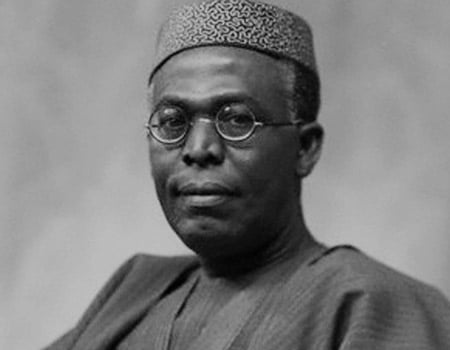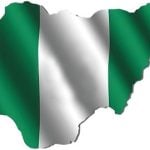“Political power and national wealth become monopolised by an increasingly narrow elite, which substitutes force for dialogue, bargaining, and legitimate authority. Mass constituencies become more and more alienated, angry, and embittered. Contending elites manipulate ethnic, regional, and religious cleavages in the struggle for power, and incidents of deadly conflict escalate in number and scale. Political and social conflicts are increasingly depicted as a struggle for domination by one ethnic group over another. Excluded groups, effectively most of the population, feel increasingly desperate and victimised. Civil society fragments and recedes. Every type of institutional glue that binds diverse cultures, regions, classes and factions together into a common national framework gradually disintegrates.”
Pronouncements from the leadership of the South-West have been unequivocal about the desire of the people of the zone to remain in a restructured Federal Republic of Nigeria. The people are neither swayed by frivolous demand for separatism nor impressed by cake-sharing ideology.
Their track records from pre-independence to post independence performances show that they are impatient with mediocrity. They are tired of being unable to march forward in the face of an inhibiting constitution imposed on them by the military. They desire membership of a true federalism where they hope to express development in concrete terms and in all ramifications and at sputnik speed. Within ten years (1954 – 1964) under the leadership of the sage: Obafemi Awolowo, they had tasted what development means and they want to go back to what paid and still pays them.
The South-West wants Nigeria to operate a truly federal system where every component part (in this case, the South-West component part) controls their resources, have their domestic laws, have their own police, have their own legal system, have their own education system and tax system.
The entire South-West geo-political zone may want to pull human and material resources together for an accelerated development giving itself a ten-year development plan where every part of the zone would be developed in all sectors in the manner of developed societies. They may be ready to donate some of their powers to the federal government to hold and use in trust for them on matters of common interest such as defence, foreign affairs, citizenship, immigration, currency and aspects of their economy. The zone may be ready to partner with some other zones in agriculture, industry and mining of solid minerals. This would be by way of investment and by way of preferential bi-lateral trade.
To be able to effectively implement their collective welfarist ideology, they may request a restructure of the political system that might want them to rename states’ leadership as “Premier” in each of the six states operating with full autonomy but having a “Coordinating Governor” at their chosen centre. The Coordinating Governor may be required to coordinate their socio-economic activities and bilateral trade relations. The status may be by rotation on four-year basis. Each state may retain its current unicameral legislative arm. The coordinating centre working with the Coordinating Governor might have a bi-cameral legislature consisting of a House of Assembly with elected membership from each of the constituent states (five members per state) and a House of Chiefs acting in advisory capacity (five selected chiefs from each state). The Coordinating Assembly might be made to settle quarrel among and between the constituent states.
By tradition, education may likely take the center stage in their search for what would catapult socio-economic development. They may likely “decree” free and compulsory education up to the age of eighteen. There might be an Assumed Local Contribution (ALS) to be subscribed by all working adults – male and female in the entire zone.
Universities in the zone – private and state owned may be encouraged to work together on course specialization and research. They may be encouraged to see themselves as 21st century citadel of learning that within twenty years must compete with the best universities in the world by standard and excellence. Federal universities in the zone would be left until relationship with the Federal would be determined.
As basically an agrarian zone, target date of ten years may be given to turn the zone to be the food basket of Nigeria in rice, maize, cassava, yam and vegetables production. It may also be given the same time frame of ten years to be leading cash crop producers of cocoa, timber, palm-oil, rubber latex. The agricultural institutes in the zone and the I.I.T.A. research in Ibadan may be used to achieve these objectives. A major entrepreneurship skill acquisition by hundreds of thousands of school-leavers might be directed to agriculture.
The coordinating government at the center might be charged with the responsibility of export of agricultural products, coordination of food products and collaboration with other zones in the country on investment in agric production, sale and consumption.
What accelerated the growth of Lagos metropolis was the deliberate effort of Chief Obafemi Awolowo to concentrate most industries of the Western Region at Ikeja, which is now the hub of industrial establishment of Lagos. The South-West might capitalize on this and categorise their industrial policy on small, middle and large scales. Thousands of its citizens who will go through series of skill acquisition through the entrepreneurship skills acquisition programmes might be made to handle the small scale industrial programme.
The point of departure of the South-West leadership in industrialisation might be to examine ALL moribund industries in the entire zone to see those to be scrapped and those to be rehabilitated. Then, they might look at how to turn virtually all their agric products to industrial raw material perhaps in partnership with other zones of the country and perhaps with international investors. The coordinating government at the center might be made to search for these partnerships.
All the solid minerals in the South-West might be considered in a mix of middle and large scale categories. They include gold, granite, limestone, bitumen and crude oil. The South-West might agree to partnership with other interested zones of the country in the investment, exploitation and sale of these products on agreed terms.
Industrial development, development in the agric sector, advancement in education and social life – all depend on efficient transportation system. The South-West is likely to make transportation a priority in its scale of values. Apart from making it a major source of revenue, the zone might turn it into the “magic wand” that makes the zone the cynosure of all eyes in the comity of zones in Nigeria.
Within ten-years of assuming full membership of a true federal system, the leadership of the zone might make Standard Gauge rail system to link all state capitals in the zone. The zone might also make it mandatory to link all states capitals with dual-carriage ways (i.e. Express Roads). All state capitals may, within ten years, have airports. Effective Public Works Departments (PWD) might be made to manage all other state roads
All the inland waterways in the zone may be upgraded and made navigable in the shortest time possible, and especially during the rainy season. Badagry, Epe, Olokola, Igbokoda may be upgraded to seaports to handle import and export products.
The success of all plans would depend on securing arrangements put in place by the authorities in the zone. People in the zone are known to be capable of fighting “even a world war” without carrying any lethal weapon, and they would win. This submission would leave security arrangements to the leadership of the zone. It should not be for public discourse.
We can see that this does not canvass balkanization of the Nigerian state. It did not canvass secession. It canvasses attainment of true federalism in which each zone or component part is allowed to develop on its own. This is what will ensure accelerated development. This is what would put paid to agitation to states creation and rancor. This is what would put quality into human lives, and, in the words of Dr. Nnamdi Azikiwe, this is what would “restore the dignity of man” in Nigeria.
Ogunniyi writes from Ibadan





